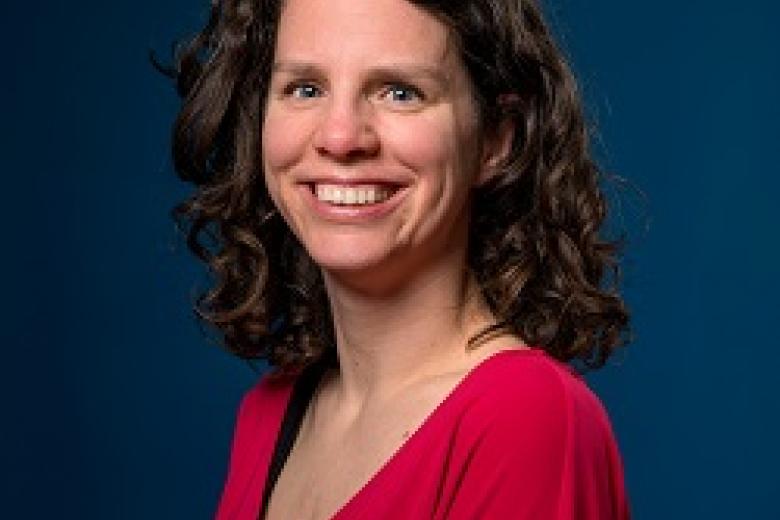Fewer concerns about falls among elderly people thanks to new one-on-one therapy
Thousands of people aged 65 and older die each year from falls. In 2014, there were 3,000 fall-related deaths – a figure that is expected to increase to roughly 4,800 over the next fifteen years due to our greying population. For elderly people, most falls occur in and around the home. Despite being a good intervention, group therapy did not draw many participants over the age of 65. Maastricht University developed a new therapy called Zicht op Evenwicht ('A Matter of Balance'), in which healthcare professionals help elderly people reduce their fall anxiety and improve daily functioning by working with them one-on-one in their homes. Participants receive tailored advice and follow a practical training programme that meets their needs and capabilities. The result is a 30% reduction in the number of falls in the home. Tanja Dorresteijn will receive her PhD from Maastricht University on 12 May for her research.
A matter of balance
As part of this personal at-home therapy course, the healthcare professional – usually a home care nurse, physiotherapist or occupational therapist – visits the participant three times at home and follows up with numerous phone consultations. Together with the participant, the healthcare professional determines the best course of action for increasing mobility by setting up a personalised programme. This programme covers various topics, such as the participant's thoughts on falling, the benefits of exercise and how to practice safer behaviours. Dorresteijn monitored the progress of hundreds of patients over a twelve-month period and found that, while the new approach may be more intensive, it's no more expensive than standard care practices.
New approach in the Netherlands
The accreditation committee for the RIVM's Healthy Living Centre awarded the intervention with the highest accreditation level (Effective: strong evidence for efficacy). The Trimbos Institute also considers the intervention to be an effective one and plans to adopt the one-on-one method in its training programme for healthcare professionals. 'We hope that all health insurers will quickly decide to cover the costs of this intervention in their policies to remove any potential barriers for participations,' says Dorresteijn, who shares this hope with her PhD supervisor, Professor Ruud Kempen. The course costs approximately €700 per participant; in the long run, however, fewer falls and improved daily functioning reduce the healthcare costs associated with fall incidents. In 2014, these costs amounted to €810 million in the Netherlands alone.
Overcoming fall-related anxiety
When older people fall, they are more likely to break an arm, leg or hip or suffer from a concussion or head trauma. The older the person, the more serious the consequences of a fall. 'The fear of falling alone causes problems,' says Dorresteijn. 'Some older people rarely leave the house and when they do, they're terrified of falling. We try to find the best way to help these patients overcome their fears and give them exercises to help them improve their balance, such as strength training or other forms of exercise. With the right support, most older people can do a lot more than they think – like shower or go to the supermarket without professional help.'
Breaking the cycle of isolation
During the seven contact points, the healthcare professional drafts a plan to help participants overcome their limitations. 'Fall anxiety has been linked to a lack of exercise and can even lead to isolation,' explains Dorresteijn. 'Breaking this cycle of isolation is one of the things that makes this approach so effective. One year after the course, many participants are less anxious and therefore more active and more engaged in social activities. This is very much in line with the government’s policy of encouraging older people to live independently for longer.'
Also read
-
PhD research shows impact of aggression on staff and patients in forensic care
Nienke Verstegen, researcher at De Forensische Zorgspecialisten, has conducted research on aggression within forensic care and its impact on patients and staff. On July 6, 2023, she will receive her PhD from Maastricht University with her dissertation 'Hurt people hurt people. Characteristics and...

-
No evidence of brain damage caused by severe COVID-19
Patients admitted to hospital due to a severe COVID-19 infection exhibit no evidence of brain damage caused by the disease. This is the conclusion of an extensive study led by Maastricht University.

-
Cold shivers?
Due to the Western lifestyle with a high fat diet combined with little exercise, more and more people in the Netherlands are overweight or even obese. This causes an increased risk of type II diabetes. What can be done about this besides a healthier lifestyle? The answer comes from an unexpected...
